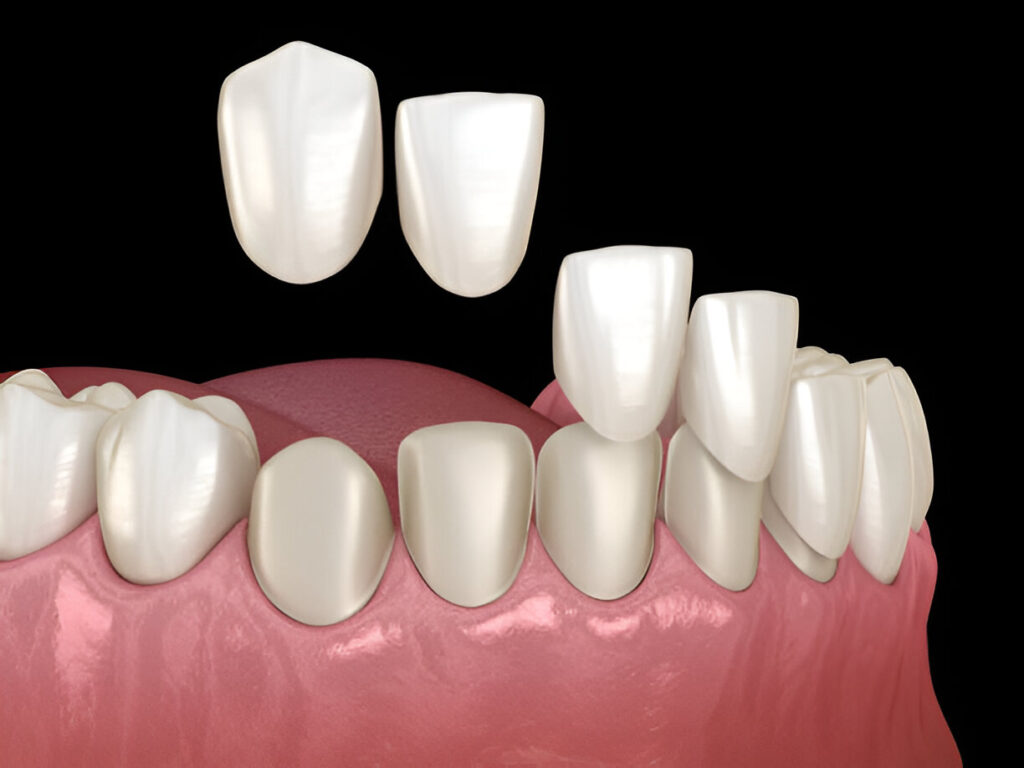A dental crown is a common solution for restoring damaged or weakened teeth. Many people worry about whether getting a crown is painful. The good news is that modern dentistry makes this procedure as comfortable as possible. With numbing techniques and proper aftercare, most patients experience little to no pain.
In this guide, we will explain what to expect during the procedure, how to manage discomfort, and how to care for your crown to avoid future pain. If you are looking for expert dental care, visit a polyclinic in Dubai for professional treatment and personalised advice.
What is a Dental Crown?
A Dental crown is a tooth-shaped cap placed over a tooth to restore its strength, size, and appearance. Crowns are used for several reasons, including:
- Protecting a weak tooth from breaking
- Covering a damaged or decayed tooth
- Restoring a tooth after a root canal
- Covering a dental implant
- Improving the look of a stained or misshapen tooth
Crowns can be made from different materials, including porcelain, metal, ceramic, and resin. The type of crown you receive depends on your dental needs and personal preference.
Does Getting a Crown Hurt?
Most people do not feel pain during a crown procedure. Dentists use local anaesthesia to numb the area before starting. This means you will not feel any sharp pain, only slight pressure or vibrations from the dental tools.
However, some discomfort can occur during different stages of the treatment. Let’s break it down.
1. The Preparation Stage
Before placing the crown, the dentist must reshape the tooth to create space for the cap. This process involves removing some enamel. Because the area is numb, you should not feel pain.
If the tooth is already damaged or has a large filling, the preparation may be less invasive. In some cases, a temporary crown is placed while waiting for the final one. Temporary crowns may feel slightly rough or sensitive but are not painful.
What is the Difference Between a Cap and a Crown?
2. Placing the Permanent Crown
When the final crown is ready, the dentist will remove the temporary crown and fit the permanent one. The fit is carefully checked before bonding it in place with strong dental cement.
This step is quick and usually pain-free. You might feel slight pressure as the crown is adjusted, but it should not be uncomfortable.
Is There Pain After the Procedure?
Some people experience mild discomfort after the anaesthesia wears off. This is normal and usually improves within a few days.
Common Causes of Post-Treatment Discomfort
- Tooth Sensitivity: Your tooth may feel sensitive to hot or cold food and drinks for a few days. Using a sensitive toothpaste can help.
- Sore Gums: The gum area around the crown may feel slightly sore. Rinsing with warm salt water can reduce irritation.
- Bite Adjustment Issues: If the crown does not fit properly, it may cause discomfort when biting down. A simple adjustment at the dentist’s office can fix this.
How to Reduce Discomfort
- Take over-the-counter pain relief if needed. Paracetamol or ibuprofen can help manage soreness.
- Avoid chewing hard foods on the crowned tooth for a few days.
- Keep your mouth clean by brushing and flossing gently around the crown.
- If pain lasts longer than a week, visit your dentist to check for any issues.
How Long Does a Crown Take to Heal?
Most people feel normal again within a few days. The gums may take a week or two to fully settle. If your tooth was severely damaged or treated with a root canal, healing may take slightly longer.
If pain or sensitivity continues beyond two weeks, schedule a dental check-up. This could mean the crown needs a small adjustment.
Can a Crown Cause Long-Term Pain?
A well-fitted crown should not cause long-term pain. However, in rare cases, discomfort may occur due to:
- A poorly fitted crown: If the bite is off, it can lead to pressure on the tooth.
- Nerve irritation: If a tooth is deeply damaged, the nerve inside may become sensitive. In some cases, a root canal might be needed.
- Gum inflammation: Poor oral hygiene can lead to gum irritation or infection around the crown.
Seeing your dentist for regular check-ups can help prevent these issues.
Can I Just Walk in to a Polyclinic?
How to Care for Your Dental Crown
Taking care of your crown will help it last longer and prevent future discomfort.
Tips for Crown Maintenance
- Brush your teeth twice a day using fluoride toothpaste.
- Floss carefully around the crown to prevent plaque buildup.
- Avoid biting on very hard foods like ice or nuts.
- Visit your dentist every six months for check-ups.
Crowns can last between 5 to 15 years with proper care. Some high-quality crowns may even last 20 years or more.
Can a Normal Dentist Do Crowns?
Final Thoughts
Getting a dental crown is not painful. Thanks to modern anaesthesia, the procedure is comfortable. Some mild discomfort may occur after the treatment, but it goes away quickly.
If you experience pain that lasts longer than a few weeks, see your dentist. A simple adjustment can often fix the issue.
With good oral hygiene and regular dental visits, your crown will stay strong, and your smile will remain healthy for years to come.
FAQs About Dental Crowns
How long does it take to get a dental crown?
The process usually takes two visits. The first visit includes tooth preparation and impressions, followed by a temporary crown. The second visit, about two weeks later, involves placing the permanent crown. Some clinics offer same-day crowns using digital technology.
Can I eat after getting a crown?
You should wait at least one hour before eating if a temporary crown is placed. Avoid hard, sticky, or very hot foods for the first 24 hours. Once the permanent crown is bonded, you can eat normally, but it is best to avoid chewing hard foods directly on the crowned tooth.
Why does my crown feel weird when I bite?
If your bite feels uneven or uncomfortable, the crown might be slightly too high. This can cause pressure when chewing. A simple adjustment at your dentist’s office can fix this quickly. If discomfort continues for more than a few days, book an appointment for an evaluation.
Can I whiten my dental crown?
No, crowns do not respond to whitening treatments. If your natural teeth whiten over time, the crown may stand out. If you are considering teeth whitening, do it before getting a crown so your dentist can match the crown to your new tooth colour.
What should I do if my crown comes loose?
If your crown becomes loose or falls out, contact your dentist immediately. Avoid chewing on the affected side and do not try to glue it back yourself. In some cases, your dentist may re-cement it, but if it is damaged, a replacement may be necessary.





